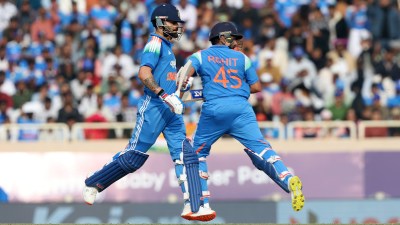Don’t scrap the law, reform it
An unknown actress in Mumbai has raised eyebrows around the country when she came out with the rather incredible complaint that a film direc...

An unknown actress in Mumbai has raised eyebrows around the country when she came out with the rather incredible complaint that a film director had raped her over five long years. The case reportedly provoked other film makers to take special precautions to ensure that they don’t ever face such a charge. But imagine a scenario where the provision against rape is actually misused on a large scale and not just in the film industry. Would you then react impulsively demanding that the word rape should be erased from the statute book? Of course, not. The most you might suggest is a safeguard to deter somebody from trivialising a serious issue and harming the interests of actual victims of rape. The rational response is reform, not throwing the baby out with the bathwater.
The same logic applies to another ongoing controversy, even though it is over a law that has already been misused on a large scale and over a long period. Following the alleged custodial rape and murder of a suspected insurgent, Thangjam Manorama, the Manipur government is suddenly caught in an avalanche of demands to declare that the state, despite all the insurgency, is no more a ‘‘disturbed area.’’ This is because so long as the state is said to be a ‘‘disturbed area,’’ the troops stationed there will act ‘‘in aid of the civil power’’ under a draconian law specially enacted for the Northeast, the Armed Forces (Special Powers) Act (AFSPA). Like other draconian laws, the AFSPA has been prone to misuse by armed personnel while carrying out operations against insurgents. Human rights groups have for years been campaigning for its repeal. But the demand for the repeal of the AFSPA never attained the proportions that it did after Manorama’s body was discovered on the night of July 10 within hours of her arrest by Assam Rifles, a military outfit that operates under the AFSPA.
Though the army admits the arrest of Manorama, it claims that she was shot when she was trying to escape from the custody of Assam Rifles. The army’s defence has only intensified the public outrage as is evident from an extraordinary demonstration in which women shed their clothes and dared soldiers to rape them. The Ibobi Singh government is under tremendous pressure to withdraw a notification it issued barely two months ago renewing the declaration of Manipur as a ‘‘disturbed area’’ under the AFSPA.
Successive governments in Manipur have unfailingly made such a periodic renewal since 1980, when the entire state was for the first time declared to be a ‘‘disturbed area.’’ The state of emergency has, thus, been enforced for 24 years without making any dent on insurgency. So, the argument that is gathering momentum is that the state should now be allowed to try dealing with insurgency without the help of the armed forces. But, much as it sounds attractive from the view-point of human rights, it is wishful to suggest that the revocation of the disturbed area declaration will persuade the insurgents to give up the gun and join the political mainstream.
This is, however, not an argument for maintaining the status quo. There is an urgent need to address the growing alienation in Manipur — as in other Northeastern states and Kashmir — on account of the special powers vested in the security personnel by the AFSPA. The fact that it is a necessary evil does not absolve the nation of the responsibility of reforming the law. In the frenzy that has been whipped up post-Manorama, nobody is talking about the option of using this opportunity to effect changes that will make the AFSPA less harsh for the public in disturbed areas. It is important to remember the pedigree of this law. It was enacted in 1958 by the government of that great democrat and pacifist, Jawaharlal Nehru. Seven years ago, the Supreme Court examined its provisions threadbare and upheld its constitutionality. Those who clamour for the revocation of the disturbed area status or the repeal of the very Act itself would do well to look up the judgment.
No, this is not an attempt to settle the debate by invoking the authority of the Supreme Court. This column has often been critical of Supreme Court judgments. More to the point, it has picked holes in the two judgments that upheld the POTA provisions in toto. The only reason the judgment on the AFSPA is being invoked here is because of the rigour with which it met the arguments against the law. If there is one area where that judgment is lacking, it is in its failure to fine-tune the mechanism for redressing complaints of misuse of the law. The sole reform made by the court is its stipulation that the Centre has to give reasons if it declines sanction to prosecute any soldier. The affected party can then challenge those reasons in the court. The present crisis calls for more such reforms.




- 01
- 02
- 03
- 04
- 05



























